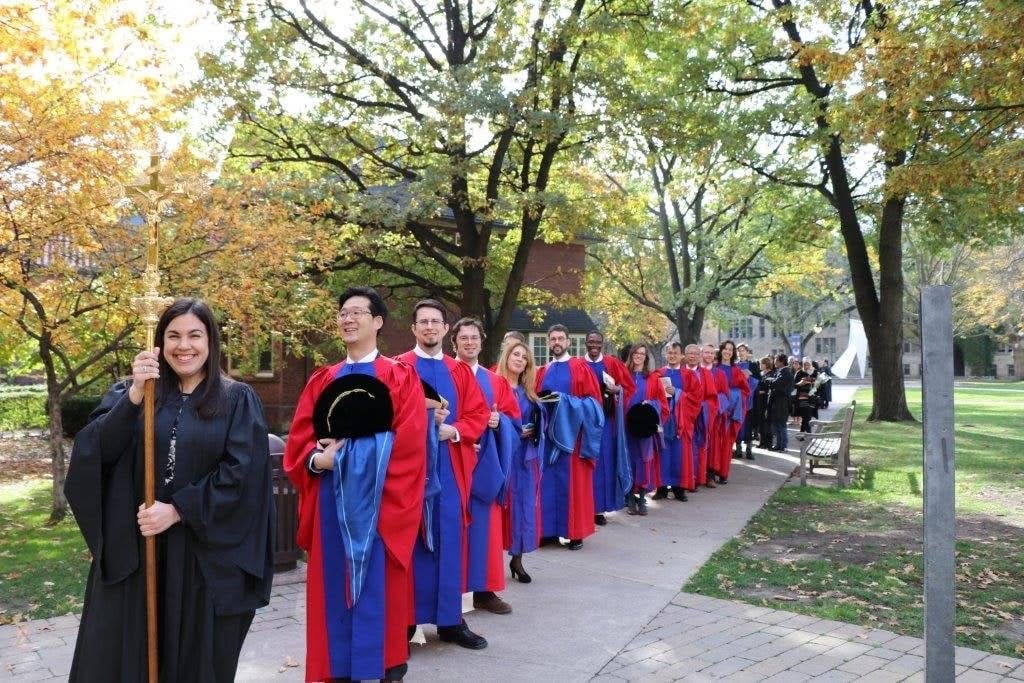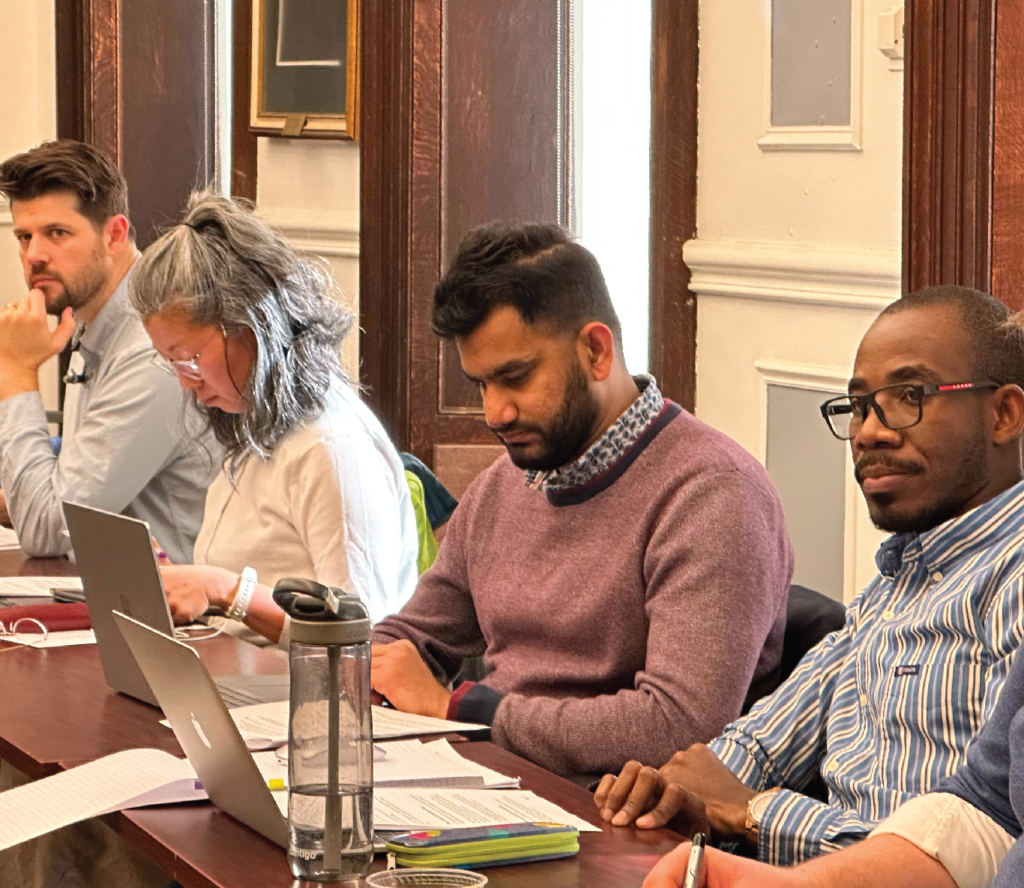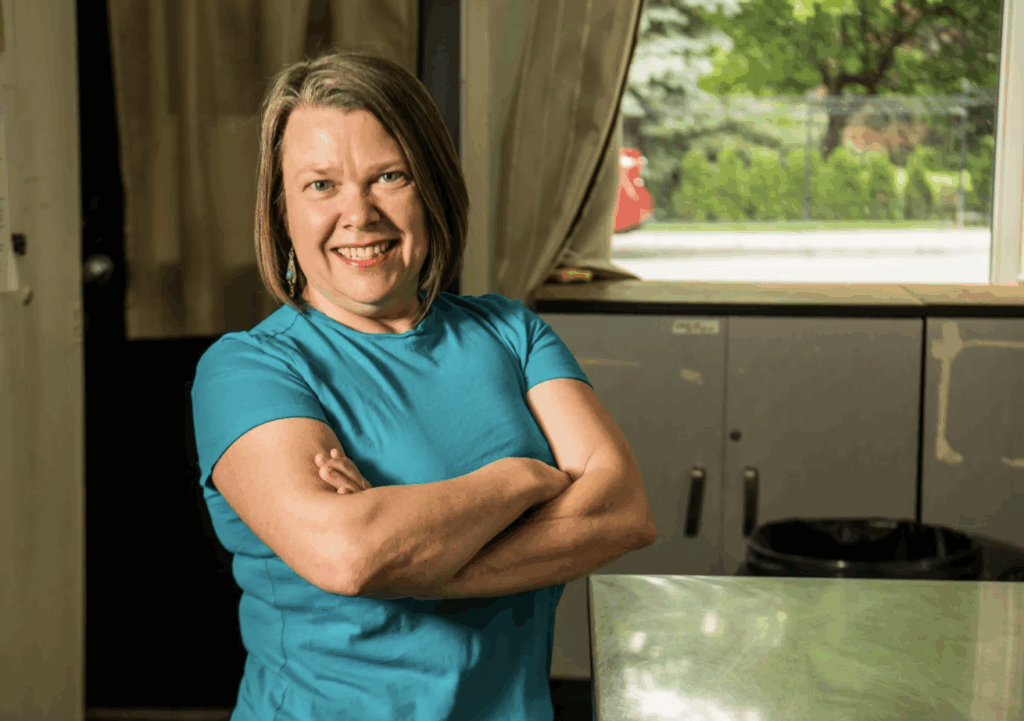Xenia L. Chan believes in the importance of rituals, so when she marks the official completion of her PhD degree from the Regis St. Michael’s Faculty of Theology (RSM) at the coming convocation, there’ll be not only the usual pomp and circumstance but a very special added touch. The moment will be steeped in symbolism as she pays tribute to those who have paved the way for her, wearing the regalia of one of her mentors and fellow alumnae, Gale A. Yee.
“Rituals are very important, and I think I need this ritual to make this accomplishment finally feel real,” Xenia says.
Xenia has earned a Doctor of Philosophy in Biblical Studies from Regis St. Michael’s and completed her thesis on “My Mother is My Grave: A Transpacific Sinophone Archive of Horror in Jeremiah’s Confessions,” under the supervision of Dr. John L. McLaughlin. Her research delves into Asian and Asian American/Canadian hermeneutics, the theory and methodology or interpreting sacred texts, as well as human experience and actions, specifically in how Asian American/Canadian literary studies can contribute to a different reading of the book of Jeremiah.
“I was particularly interested in how Asian and Asian American/Canadian hermeneutics have shifted and changed over the last 20 years or so. I’d noticed that people were eager to talk about Asian and Asian American hermeneutics, and I wanted to contribute to continuing the project of both exploring the contours of this kind of reading and discovering what happens when we bring transpacific studies into the conversation,” she says.
Xenia studied political science and history at the undergraduate level before embarking on careers in journalism, campus ministry, and then pastoral ministry in a diaspora Protestant church context. She pursued a Master of Divinity from Tyndale Seminary and was then encouraged to apply to the doctorate program at the Toronto School of Theology.
“I found Regis St. Michael’s to be an incredibly generative space where we had the opportunity to be creative together. At RSM, we were encouraging to think out of the box, which really allowed for ideas and relationships to flourish,” she says.
Influential to Xenia’s research was her thesis supervisor, Prof. McLaughlin. “I not only appreciated his feedback on my thesis, but I knew he cared for me as a whole person and not just for the work that I produced,” she says.
Her work also builds on the research of preceding Old Testament/Hebrew Bible scholars, including Prof. Yee. “My academic journey is only possible because she paved the way and it means so much that we’re both St. Mike’s grads,” says Xenia, adding, “It’s awesome to meet your heroes and they live up to the hype. For me, Gale not only lives up to the hype. She’s exceeded it—because not only is she an amazing scholar, she’s also a phenomenal human being.”
Arrangements to pass on Yee’s regalia were made when the two finally met in person at an annual meeting of the Society of Biblical Literature. Despite their overlapping research, they had only conversed online and were friends on Facebook. Yee had asked whether Xenia had acquired robes for convocation and when Yee learned she had not, she offered hers. Xenia was stunned with this sentimental and generous gesture.
“Ever since meeting her I’ve been impressed with her scholarship and I’m proud of who she’s become. I’m glad to know somebody will continue to wear the robes,” says Yee.
Yee grew up in Cincinnati, Ohio, and came to the University of St. Michael’s Faculty of Theology in the 1970s where she earned her Doctor of Philosophy degree in the Old Testament. She graduated in 1985, the first Asian American to so. She went on to teach at what is now the University of St. Thomas in Saint Paul, Minnesota, from 1984 to 1998 and then the Episcopal Divinity School in Cambridge, Massachusetts, from 1998 until 2017.
In 2019, she became the first woman of colour and first Asian American to serve as President of the Society of Biblical Literature.
Yee proudly donned the St. Michael’s colours when she attended the matriculations and convocations for her teaching roles. “I loved the gown with its wonderful velvet hat because it was so flamboyant, and everyone would stop and comment —it’s a very unusual doctoral robe,” she says.
It means a lot to Yee, knowing that the robes have been passed on to another woman of Asian descent who studies the Old Testament/Hebrew Bible.
Xenia will be able to continue to wear these robes at future celebrations at Augustana University in Sioux Falls, South Dakota, where she is currently an Assistant Professor of Religion. She teaches a range of religion courses, including Old Testament/Hebrew Bible courses. She tries to incorporate the out-of-the box thinking she experienced at Regis St. Michael’s to the classes she teaches by encouraging her students to question how they categorize experiences, situations, and people and offering alternatives to writing traditional papers, all the while encouraging them to think about how religion continues to be relevant in the present.
“I try to teach my students that there’s always a little bit more nuance and encourage them to be open to new experiences,” she says. Hanging in her office is a gift from one of her students who created it for a project based on the Exodus 3:14, where God tells Moses, “I am who I am.” The glass beads refract light signifying the expansiveness of who God is and his continual faithfulness.












